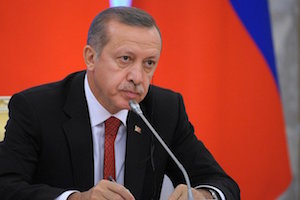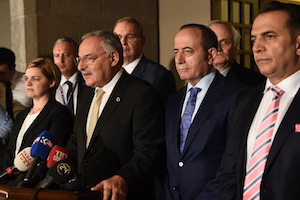Momentum, Societal Militarization and Erdoğan's Forever Wars
By Gareth H. Jenkins
April 3, 2018
The conquest of Afrin in northwest Syria has boosted President Erdoğan’s popular support and raised expectations amongst his supporters at a time when they already believe that they are active participants in a sacred struggle. But, with Russia, Iran or the US expected to block any further attempts at major territorial acquisitions in Syria or Iraq, Erdoğan is running out of options and in danger of losing electoral momentum long before Turkey is due to go to the polls in November 2019.

How Neoliberal is Turkey?
By Thomas Helm
March 8, 2018
A “neoliberal” consensus has reigned in Turkish politics since the 1980s. Yet far from being rolled back, the state has in fact been actively “rolled forward.” Various aspects of neoliberalism have been assimilated into an authoritarian system. The system features a combination of a liberalized economy with weak trade unions, poor workers’ rights and a strong state with a pervasive, centralized crony-capitalism. It has come at a significant social cost and relies on potentially unstable growth.

Turkey’s Journey from Secularism to Islamization: A Capitalist Story
By Halil Karaveli
May 13, 2016
The dynamics of capitalist development have played a much more central role for Turkey’s journey from secularism to religious conservatism – and before that for the Kemalist break with Islam – than what is generally recognized. During the context of the Cold War, capitalist development and Islamization went hand in hand, as religious conservatism neutralized the challenge of the left and labor. Today, neoliberal globalization provides impetus for Islamization. Raising “pious generations” – who are “traditional,” not rebellious – is essential for sustaining neo-liberalism. An explicitly “religious” constitution, in which reference is made to God, will serve to mask that it is capital that reigns supreme. Ultimately, the survival of secularism requires that the economic order that depends on continued Islamization is called into question.



